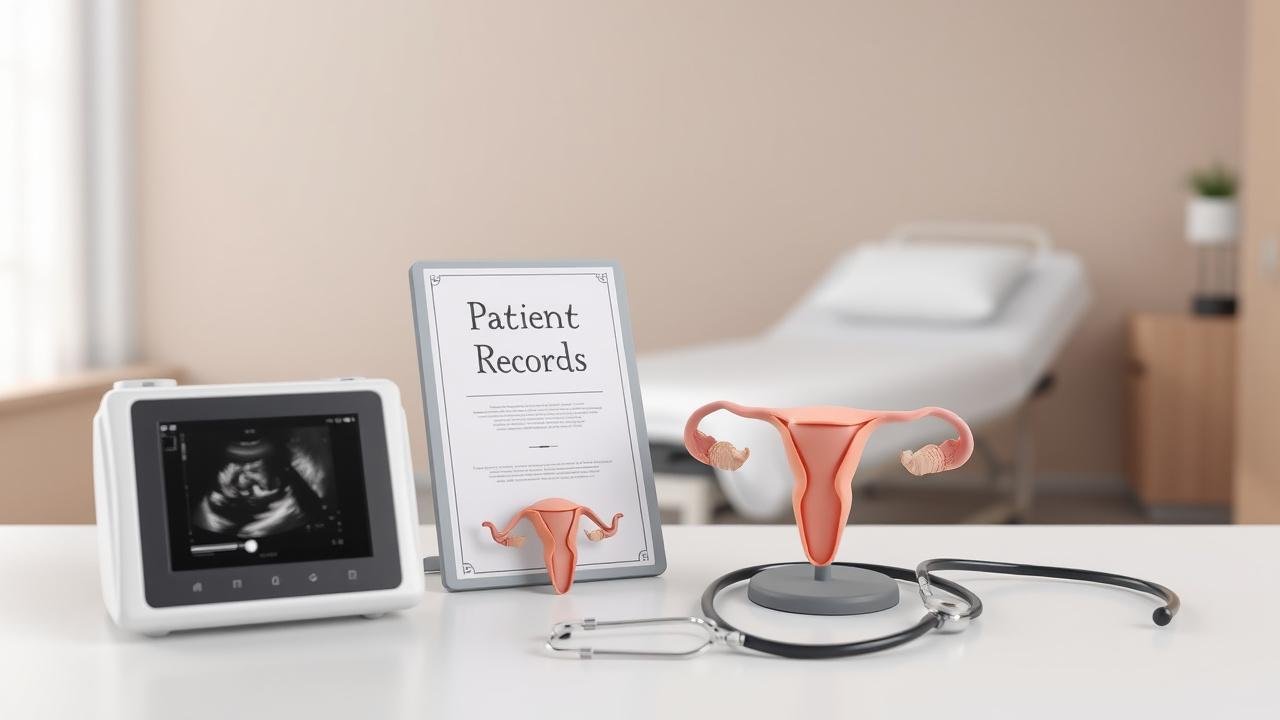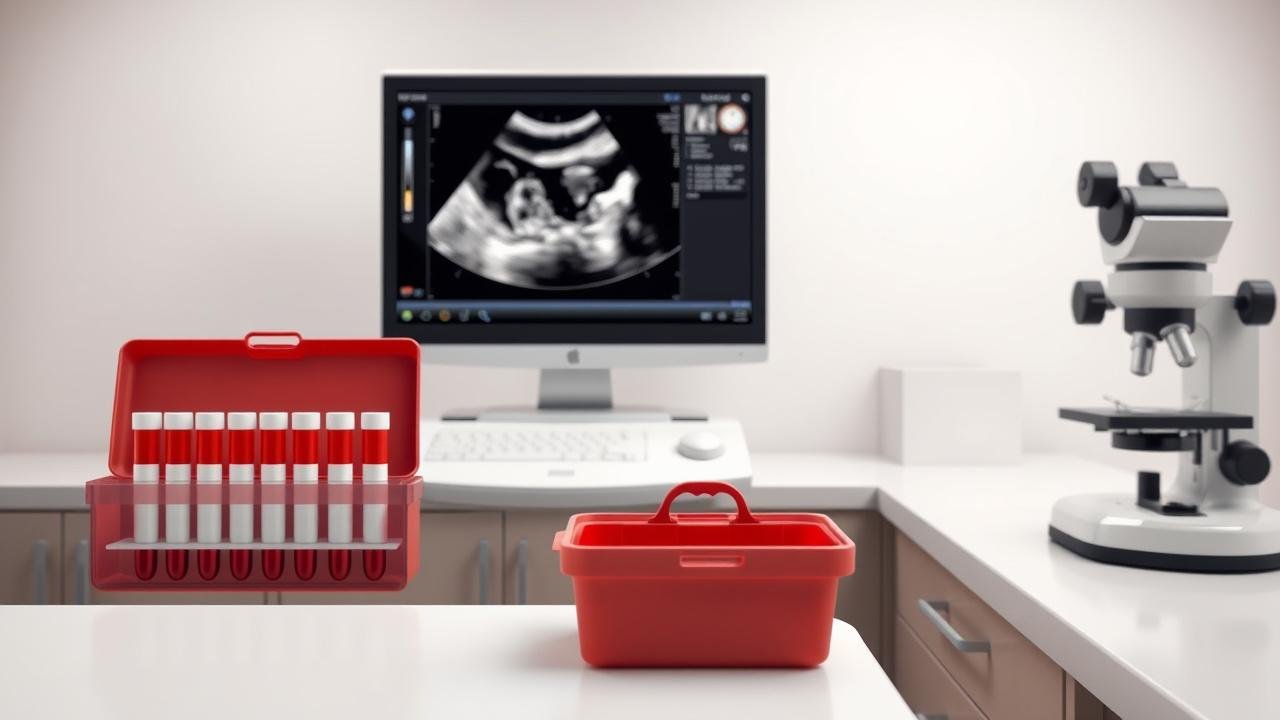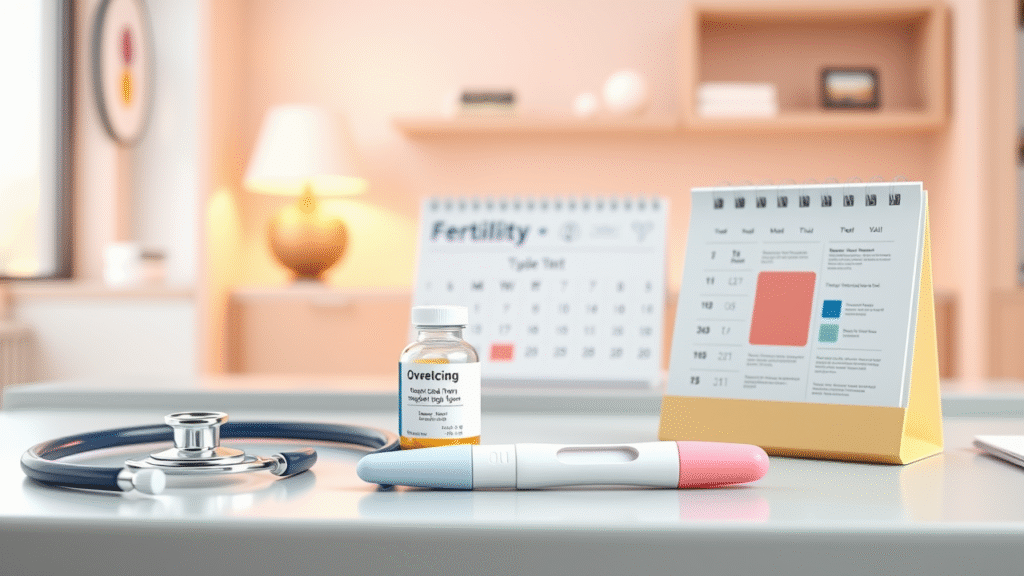Knowing when to see a fertility specialist can make a crucial difference in your journey to parenthood. This guide explores the signs that suggest it’s time to seek expert help early, from key indicators of fertility challenges and medical conditions to lifestyle influences and emotional cues. We’ll also discuss how age affects timing, what diagnostic steps you can expect during your first visit, and how to navigate treatment options confidently. By understanding these interconnected aspects, you can take proactive steps toward achieving your family goals with clarity and assurance.
Understanding the Key Indicators of Fertility Challenges
Recognizing the key indicators of fertility challenges is crucial for deciding when to seek expert help, making this a foundational aspect of understanding your reproductive health. These signs often include irregular menstrual cycles, unexplained pain, or a lack of conception despite consistent attempts over time. Awareness of such symptoms allows individuals and couples to act promptly, rather than waiting until age or underlying conditions—discussed in sections like ‘Common Medical Conditions That May Warrant Early Fertility Evaluation’ and ‘How Age Influences the Urgency of Consulting a Fertility Specialist’—further complicate the journey. Early identification also ties into lifestyle and emotional factors that can signal when intervention might be necessary, as explored in related parts of the blog. By understanding these indicators, you are better equipped to navigate diagnostic tests and treatment options confidently, connecting directly with insights provided in ‘Diagnostic Tests and Procedures to Expect During Your Initial Fertility Consultation’ and ‘Navigating Treatment Options After Your Fertility Specialist Visit.’ This knowledge empowers proactive preparation for specialist consultations.
Common Medical Conditions That May Warrant Early Fertility Evaluation

Certain medical conditions can signal the need for an early fertility evaluation, making timely consultation with a specialist crucial. Issues like polycystic ovary syndrome (PCOS), endometriosis, irregular menstrual cycles, or a history of pelvic infections often disrupt reproductive function and may warrant prompt assessment. Additionally, underlying hormonal imbalances or autoimmune disorders can impair fertility and should not be overlooked. Recognizing these conditions ties closely to understanding the key indicators of fertility challenges, as discussed earlier in the blog. Early detection through diagnostic tests outlined later can lead to more effective treatment options and better outcomes. Moreover, when combined with factors such as age or lifestyle influences explored in other sections, addressing these medical concerns proactively helps reduce emotional stress and uncertainty. Preparing for your consultation with awareness of these health issues ensures you approach your specialist visit with confidence and clarity about your unique situation.
Lifestyle and Environmental Factors Impacting Fertility Timing
Lifestyle and environmental factors play a crucial role in determining when to seek fertility assistance, often influencing the timing as much as medical conditions or age. Habits such as smoking, excessive alcohol consumption, poor diet, and high stress levels can negatively impact reproductive health and delay conception. Exposure to environmental toxins like pesticides or heavy metals further complicates fertility prospects. Recognizing these influences early can prompt couples to consult a fertility specialist sooner, complementing insights from understanding key indicators of fertility challenges or emotional signs that suggest support is needed. These lifestyle elements often intersect with diagnostic findings during initial consultations, guiding personalized treatment plans. Being aware of how daily choices affect fertility empowers individuals to take proactive steps before conditions worsen or age-related decline accelerates. Integrating this perspective enriches the overall approach outlined in the blog, ensuring readers grasp the full scope of factors impacting their journey toward parenthood.
Emotional and Psychological Signs That Suggest Seeking Fertility Support Sooner

Emotional and psychological signals often serve as important indicators that it’s time to seek fertility support, complementing the physical signs outlined in sections like “Understanding the Key Indicators of Fertility Challenges” and “Common Medical Conditions That May Warrant Early Fertility Evaluation.” Feelings of persistent stress, anxiety, or depression related to difficulties conceiving can significantly impact overall well-being and fertility itself. When emotional strain begins to affect daily life or relationships, it’s a strong signal to consult a specialist sooner rather than later. This psychological burden may also influence lifestyle factors discussed in “Lifestyle and Environmental Factors Impacting Fertility Timing,” as stress can alter habits that affect reproductive health. Recognizing these emotional cues helps prepare you mentally for the diagnostic journey described in “Diagnostic Tests and Procedures to Expect During Your Initial Fertility Consultation,” making the process less daunting. Addressing mental health early supports a more holistic approach when navigating treatment options and taking proactive steps toward fertility success.
How Age Influences the Urgency of Consulting a Fertility Specialist
Age plays a pivotal role in determining how urgently one should seek fertility specialist advice, as reproductive potential naturally declines over time. Women over 35 are often advised to consult a specialist sooner than younger counterparts because the quality and quantity of eggs diminish more rapidly with age. This urgency ties directly into recognizing key indicators of fertility challenges early on, as outlined in the blog’s section on understanding warning signs. Additionally, age can intersect with common medical conditions that affect fertility and may compound risks. Younger individuals experiencing lifestyle or environmental factors impacting fertility might still benefit from early evaluation, but age intensifies the need for prompt action. Emotional readiness also factors in, since the psychological toll of delayed consultation can grow heavier with advancing years. Preparing for an initial consultation becomes even more crucial when age is a significant concern, helping patients navigate diagnostic tests and treatment options effectively without unnecessary delay.
Diagnostic Tests and Procedures to Expect During Your Initial Fertility Consultation

During your initial fertility consultation, expect a series of diagnostic tests and procedures designed to uncover the root causes of fertility challenges. These may include blood tests to assess hormone levels, ultrasound imaging to evaluate ovarian reserve and uterine health, and semen analysis for male partners. Understanding these diagnostics is essential, especially when key indicators of fertility issues or common medical conditions suggest early evaluation is needed. The insights gained here also tie into how age influences urgency, as certain test results can guide timely intervention. Additionally, lifestyle factors might be assessed during this phase to identify environmental impacts on reproductive health. Recognizing emotional and psychological signs prior to testing can help you prepare mentally for potential outcomes. This diagnostic groundwork not only clarifies your fertility status but also informs personalized treatment options discussed after the consultation, making it a critical step in taking proactive control of your reproductive journey with confidence.
Navigating Treatment Options After Your Fertility Specialist Visit
After your initial visit to a fertility specialist, understanding the range of treatment options is crucial for making informed decisions about your reproductive health. Treatment paths can vary widely based on the diagnostic tests and procedures you underwent during your consultation, which help pinpoint specific challenges as outlined in earlier sections like “Common Medical Conditions That May Warrant Early Fertility Evaluation.” Options might include lifestyle adjustments informed by factors discussed under “Lifestyle and Environmental Factors Impacting Fertility Timing,” or more advanced interventions such as medication, intrauterine insemination (IUI), or in vitro fertilization (IVF). The urgency of starting treatment often relates closely to age considerations detailed in “How Age Influences the Urgency of Consulting a Fertility Specialist.” Emotional readiness also plays a role, connecting back to insights from “Emotional and Psychological Signs That Suggest Seeking Fertility Support Sooner.” Navigating these choices with clarity ensures you feel empowered to take proactive steps toward achieving your family-building goals.
Taking Proactive Steps: Preparing for a Fertility Specialist Consultation with Confidence
Approaching a fertility specialist consultation with preparation and confidence empowers you to take meaningful control over your journey. Recognizing the signals from your body, understanding relevant medical factors, and acknowledging emotional cues all contribute to a clearer path forward. This readiness allows for open dialogue about diagnostic tests and potential treatments, fostering hope rather than uncertainty. As age and lifestyle intertwine with fertility considerations, being proactive becomes a vital form of self-care. Through each step, resources like MomDadDispatch.com offer gentle guidance and understanding, reminding you that support is always within reach during this deeply personal experience.






